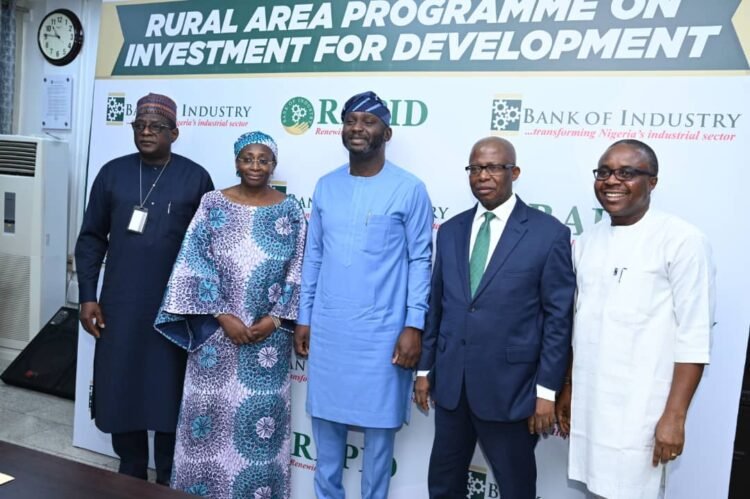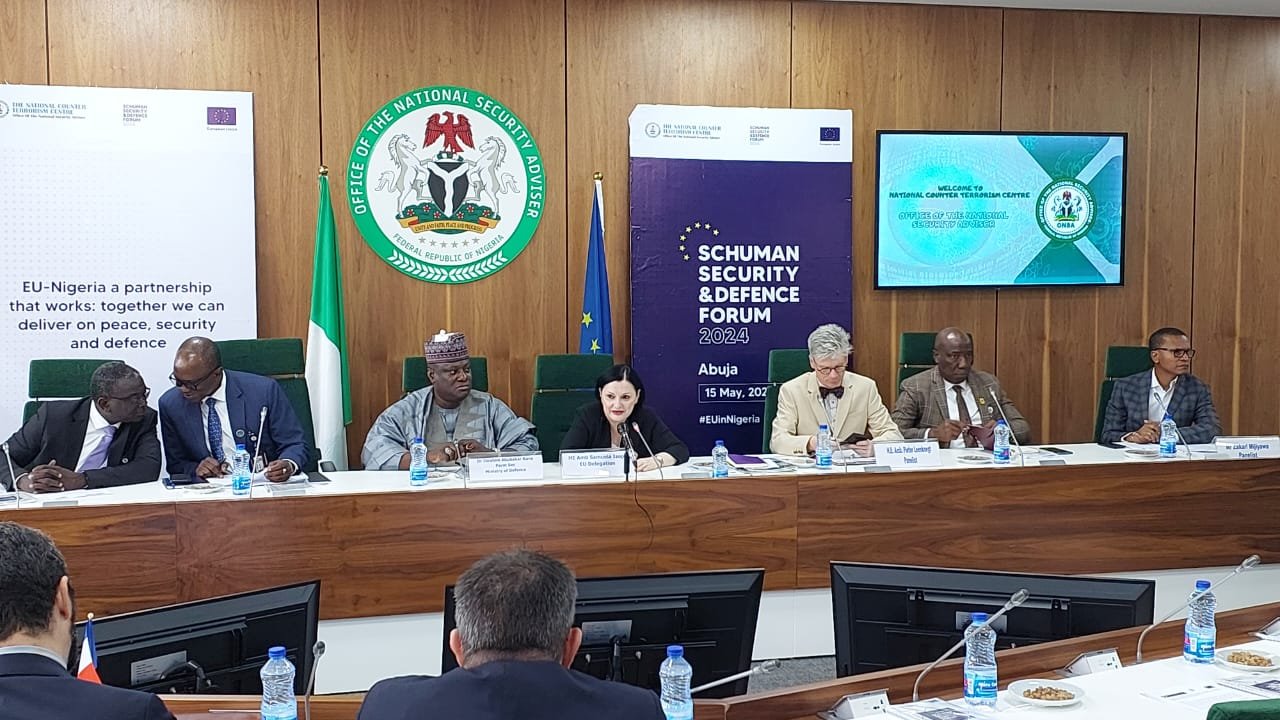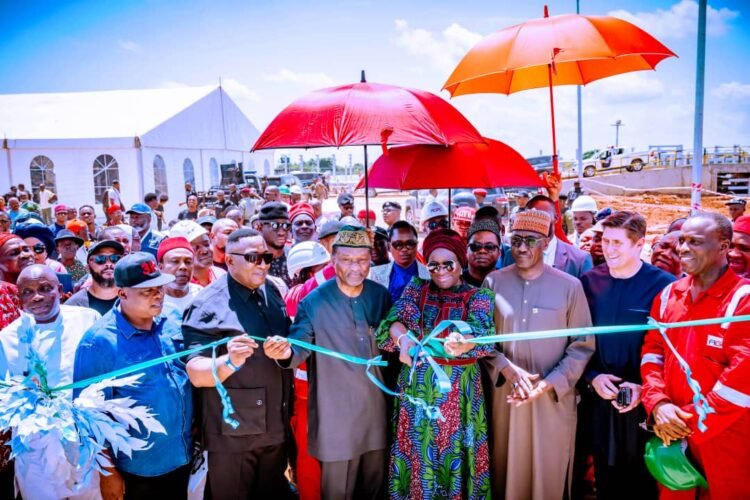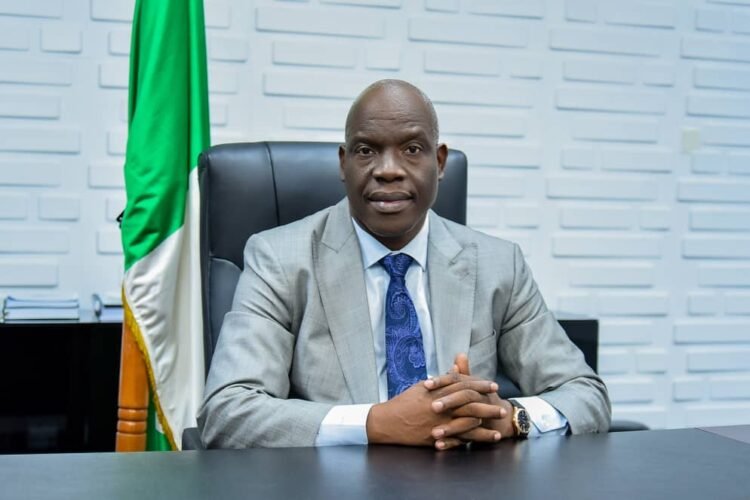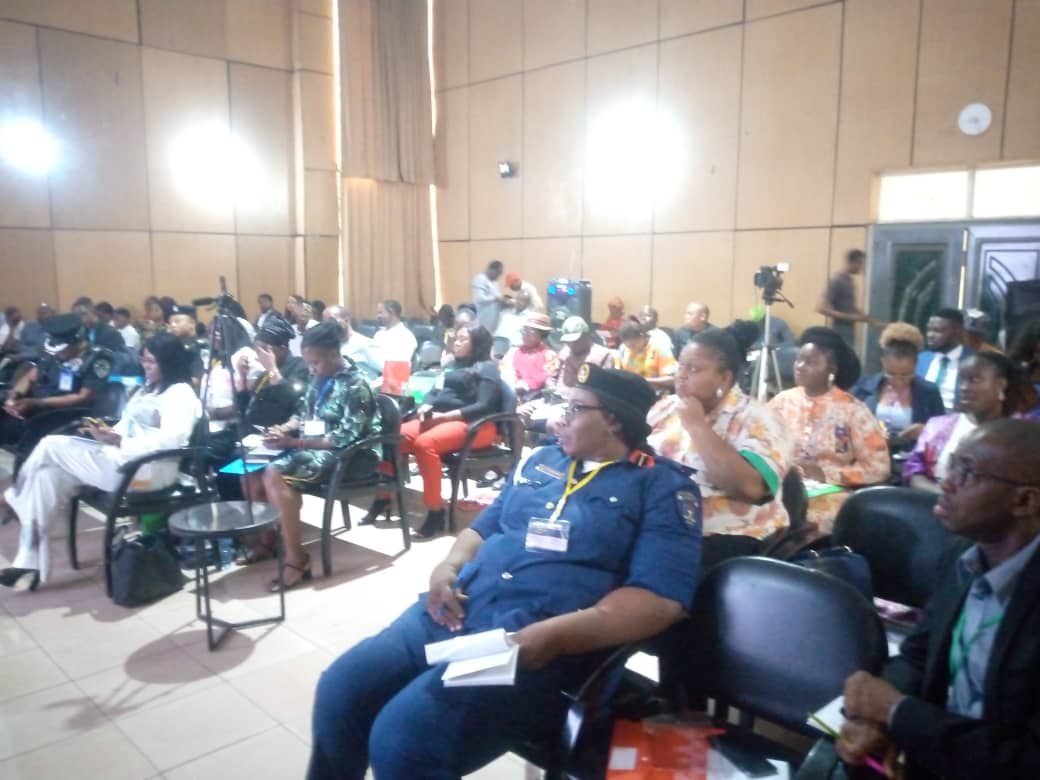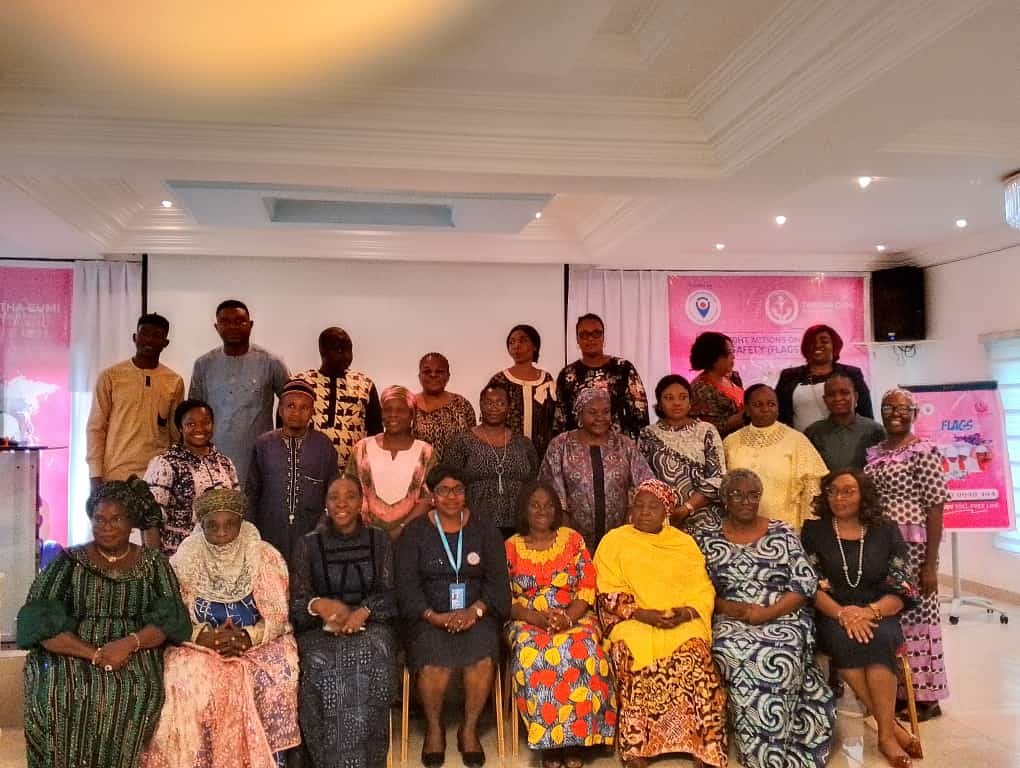Nigeria’s inflation rate hits 33.69% in April- NBS
By Okeoghene Akubuike
The National Bureau of Statistics (NBS), says Nigeria’s headline inflation rate increased to 33.69 per cent in April 2024.
The NBS said this in its Consumer Price Index (CPI) and Inflation Report for April, which was released in Abuja on Wednesday.
According to the report, the figure is 0.49 per cent points higher compared to the 33.20 per cent recorded in March 2024.
It said on a year-on-year basis, the headline inflation rate in April 2024 was 11.47 per cent higher than the rate recorded in April 2023 at 22.22 per cent.
In addition, the report said, on a month-on-month basis, the headline inflation rate in April 2024 was 2.29 per cent, which was 0.73 per cent lower than the rate recorded in March 2024 at 3.02 per cent.
“This means that in April 2024, the rate of increase in the average price level is less than the rate of increase in the average price level in March 2024.”
The report said the increase in the headline index for April 2024 on a year-on-year basis and month-on-month basis was attributed to the increase in some items in the basket of goods and services at the divisional level.
It said these increases were observed in food and non-alcoholic beverages, housing, water, electricity, gas, and other fuel, clothing and footwear, and transport.
Others were furnishings, household equipment and maintenance, education, health, miscellaneous goods and services, restaurants and hotels, alcoholic beverage, tobacco and kola, recreation and culture, and communication.
It said the percentage change in the average CPI for the 12 months ending April 2024 over the average of the CPI for the previous corresponding 12-month period was 28.10 per cent.
“This indicates a 7.28 per cent increase compared to 20.82 per cent recorded in April 2023.”
The report said the food inflation rate in April 2024 increased to 40. 53 per cent on a year-on-year basis, which was 15.92 per cent higher compared to the rate recorded in April 2023 at 24.61 per cent.
“The rise in food inflation on a year-on-year basis is caused by increases in prices of Garri, Millet, Akpu Uncooked Fermented (which are under the Bread and Cereals class), Yam Tuber, and Water Yam, CocoYam
“Others are Dried Fish Sadine, Dried Catfish, Mudfish Dried, Palm Oil, Vegetable Oil, Coconut Oil , Beef Feet, Beef Head, Liver, Frozen Chicken.
“Others are Mango, Banana, Grapefruit, Coconut, Water Melon, Lipton Tea, Bournvita, and Milo.”
It said on a month-on-month basis, the food inflation rate in April was 2.50 per cent, which was a 1.11 per cent decreaese compared to the rate recorded in March 2024 at 3.62 per cent.
“The fall in food inflation on a month-on-month basis was caused by a decrease in the average prices of Guinea corn flour, Plantain Flour etc (under Bread and Cereals class); Yam, Water Yam, Irish Potato, and CocoYam.
“Others are Beer, Loacl Beer, Milo, Bournvita, Nescafe, Groundnut oil, Palm oil, egg, fresh milk, powdered milk, Tin Milk, Soft drinks, wine and fruits. ”
The report said that “all items less farm produce and energy’’ or core inflation, which excludes the prices of volatile agricultural produce and energy, stood at 26.84 per cent in April on a year-on-year basis.
“This increased by 6.87 per cent compared to 19.96 per cent recorded in April 2023.’’
“The exclusion of the PMS is due to the deregulation of the commodity by removal of subsidy.”
It said the highest increases were recorded in prices of Actual and Imputed Rentals for Housing, Journey by motorcycle, Bus Journey within a city, Consultation Fee of a medical doctor, X-ray photography among others.
The NBS said on a month-on-month basis, the core inflation rate was 2.20 per cent in April 2024.
“This indicates a 0.24 per cent decrease compared to what was recorded in March 2024 at 2.54 per cent.”
“The average 12-month annual inflation rate was 22.84 per cent for the 12 months ending April 2024, this was 5.15 per cent points higher than the 17.70 per cent recorded in April 2023.”
The report said on a year-on-year basis in April 2024, the urban inflation rate was 36 per cent, which was 12.61 per cent higher compared to the 23.39 per cent recorded in April 2023.
“On a month-on-month basis, the uban inflation rate was 2.67 per cent, which decreased by 0.50 per cent compared to March 2024 at 3.17 per cent.’’
The report said on a year-on-year basis in April 2024, the rural inflation rate was 31.64 per cent, which was 10.50 per cent higher compared to the 21.14 per cent recorded in April 2023.
“On a month-on-month basis, the rural inflation rate was 1.92 per cent, which decreased by 0.95 per cent compared to March 2024 at per cent.’’
On states’ profile analysis, the report showed in April that all items inflation rate on a year-on-year basis was highest in Kogi at 40.84 per cent, followed by Bauchi at 39.91 per cent, and Oyo at 38.37 per cent.
It, however, said the slowest rise in headline inflation on a year-on-year basis was recorded in Borno at 26.09 per cent, followed by Benue at 27.53 per cent, and Taraba at 28.69 per cent.
The report, however, said in April 2024, all items inflation rate on a month-on-month basis was highest in Lagos at 4.52 per cent, followed by Ondo at 3.35 per cent, and Edo at 3.27 per cent.
“Kano at 0.30 per cent, followed by Ebonyi at 0.97 per cent and Adamawa at 1.27 per cent recorded the slowest rise in month-on-month inflation.”
The report said on a year-on-year basis, food inflation was highest in Kogi at 48.62 per cent, followed by Kwara at 46.73 per cent, and Ondo at 45.88 per cent.
“Adamawa at 33.61 per cent, followed by Bauchi at 33.85 per cent and Nasarawa at 34.03 per cent recorded the slowest rise in food inflation on a year-on-year basis.’’
The report, however, said on a month-on-month basis, food inflation was highest in Lagos at 4.74 per cent, followed by Edo at 4.06 per cent, and Yobe at 3.99 per cent.
“While Kano at 0.47 per cent, followed by Adamawa at 0.98per cent and Zamfara at 1.50 per cent, recorded the slowest rise in inflation on a month-on-month basis.” (NAN) (www.nannews.ng)
Edited by Ese E. Eniola Williams





